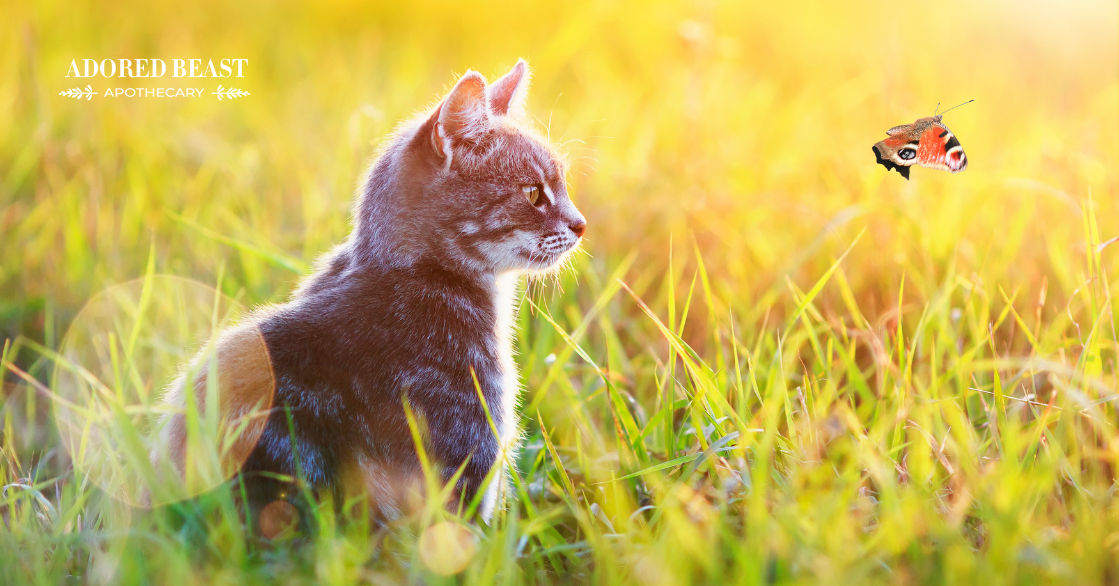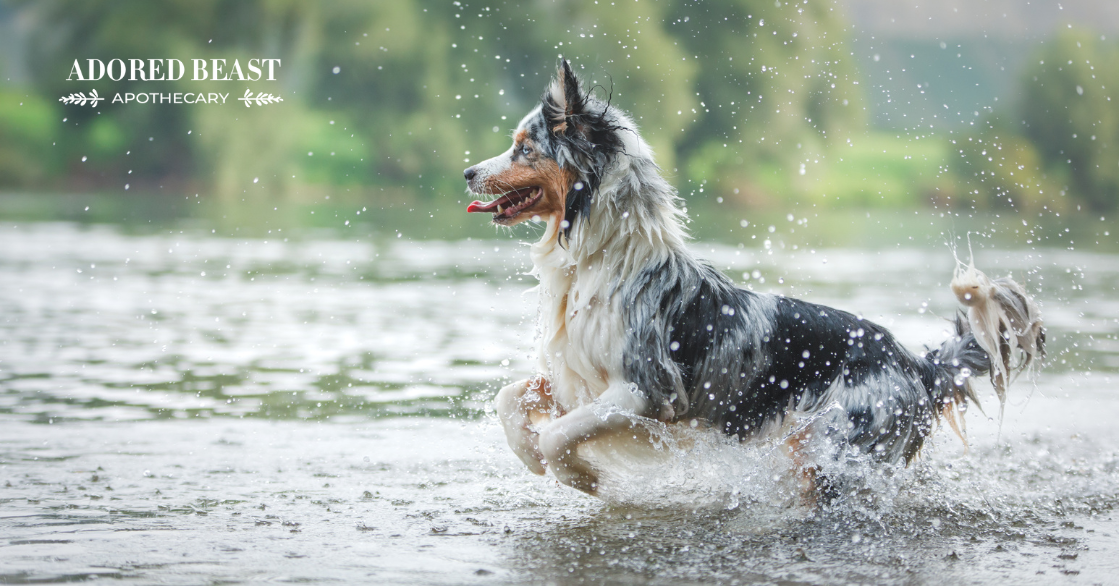Poop is a big part of my life.
I know, that’s such a weird statement to make, but it honestly forms such an important part of my research. I can’t help waking up in the morning and thinking “Poop”!
But seriously, research is finally showing the vital importance of a healthy gut and how so much chronic disease in humans, including mental illness, is directly linked to gut health. When I first started working on a canine specific probiotic a few years ago, there was nothing like it on the market. No one had isolated canine specific strains to create a species-specific probiotic for dogs. And to me, that was such a huge gap – in both the science and the ability of pet parents to give their dogs species-specific strains.
When we released Fido’s Flora, it had a huge impact on the health of our dogs and introduced the concept to the world.
But I knew that I was just starting my journey of filling the gaps. While we’d done the work for dogs, our feline friends were still missing out.
And so work began on species-specific probiotics for cats…
Species-Specific Probiotics for Cats: The Basics
Before I dive into the exciting new generation of probiotics for cats, here’s some key background on probiotics (and their importance for your cat) for those of you who have a life outside researching gut health!
Over 80 percent of the immune system comes from the gut and the vast majority of microorganisms exist within the digestive tract. A normal digestive tract contains both “good” and “bad” (pathogenic) bacteria. A wide variety of diseases or conditions, as well as the medication and drugs used to treat them, can cause the digestive tract to become “unbalanced.” Pathogenic bacteria then take over the environment, overwhelming the “good guys” and creating poor gut health.
What’s Harming The Gut?
There are many things that damage the gut environment, creating much of the chronic disease we see in our cats today. This includes:
- antibiotics
- non-steroidal anti-inflammatories and steroids
- flea treatment and most drugs in general
- fluoride in our tap water
- over-vaccination
- processed food
- stress
- loneliness and bordom
- grains or beans (anything with lectins)
Gut imbalance can result in reduced food digestion and vitamin production (especially vitamins B and K) and can lead to serious malnutrition. Gut imbalance can also make your cat susceptible to infection by harmful bacteria, and a poor microbiome can result in a weakened immune system, leading to chronic upper respiratory infections, feline herpes, more susceptibility to dangerous viruses…
Digestive disorders like inflammatory bowel disease (IBD), chronic or life-threatening diseases like cancer and autoimmune disease (including skin disease and hyperthyroidism) can all have links to an unhealthy gut.
The intestinal balance of microorganisms performs many functions, including:
- fermenting dietary fiber
- synthesizing vitamins
- modulating the immune system
- limiting the growth of harmful organisms
- producing hormones that support metabolism and neurological functions and regulates hormones
- keeping the organs healthy
Intestinal microorganisms adapt as a result of diet, age, exposure to antibiotics and other drugs.
So why species-specific probiotics for cats?
Species-Specific Bacteria
Pet food manufacturers know that pet parents are paying attention. They know that gut health has become a focus for many, and thus are adding probiotics to pet food. The thing is, these additions are mostly driven by marketing claims, with apparent disregard for any scientific rationale for including probiotics in the first place.
There’s no doubt that good quality probiotics on the market are empirically beneficial for your cat. For years we’ve seen positive changes in the gastrointestinal tract, energy, infections, skin… Yet one of the problems with current probiotics for cats is that the research has always been done on humans, and we really don’t know which bacteria strains are best for felines. That’s why you’ll see probiotics for cats with high colony forming units (CFUs) and dozens of different human strains of bacteria that match the correlating feline pathology, in the hope that they colonize in the feline gut. Because cats’ digestive tracts are quite different from ours, we’ve never really been sure that existing probiotic strains can withstand the activity, acidity and environment of a cat’s gut.
Just as we did with Fido’s Flora for dogs, we’ve analyzed cats’ own feces to identify which bacteria are beneficial for them.
We know that while there is some commonality of intestinal bacteria between species, each species of animal has its own specific microflora. Probiotic bacteria evolve host-specific traits – meaning you want to find a strain or strains that have optimum efficacy for the host, body or species it’s specific to.
It’s just intuitive, as well as scientifically correct, that ideally our companion animals would be given probiotics that were developed with their best interests in mind. So naturally I wanted to delve into research to make sure that probiotics for cats are biologically appropriate, have beneficial properties, and can be easily incorporated into a daily diet or given as a dietary supplement.
Really, just as with Fido’s Flora, species-specific probiotics for cats just make sense.
The Benefits of Species-Specific Probiotics for Cats
I’ve been working with a diversified team of experts in veterinary medicine, food microbiology, medical microbiology and immunology, food and nutritional science who set out to do just that. Felix’s Flora is the culmination of this research, and we’ve been able to isolate strains that have the following (very important) host-specific traits:
- Reduce inflammation
- Improve nutrient absorption
- Defend against harmful pathogens
- Modulate the immune system
- Support healthy organ function
- Strengthen the cut barrier
- Improve bowel function
- Reduce allergies
The bar has been substantially raised through the development of biologically species-specific probiotics for cats. And yes, that means your cat!
These probiotics of feline (poop) origin have been isolated and further developed. They’ve been replicated and grown in human grade fermentation facilities for quality control and assurance, and they’ve been tested in vitro (lab research) and feeding trials. They’re also combined with prebiotics to maximize their potential to positively colonize and stabilize in the gut of your cat.
And that means these strains can be helpful for all sorts of feline-specific issues, including:
- Insatiable itching
- Inflammatory bowel disease
- Allergies (sneezing, itching)
- Gum disease and gingivitis
- Loose or inconsistent stools
- Vomiting
- Upper respiratory infections
- Auto-immune disease
- Organ disease
- Digestive disease
I’m sure you’re all skipping and jumping around your living room after reading this – or maybe that’s just me! But seriously, we all know the importance of species-appropriate diets for our cats, so why wouldn’t we all be over the moon that a species-appropriate probiotic has been isolated and formulated with the health and longevity for our feline friends strictly in mind.
This research is about probiotics and foundational health, but it’s opened the door to many more exciting and innovative ways to hone-in on the wellness that will be specifically species-oriented for your cat.












